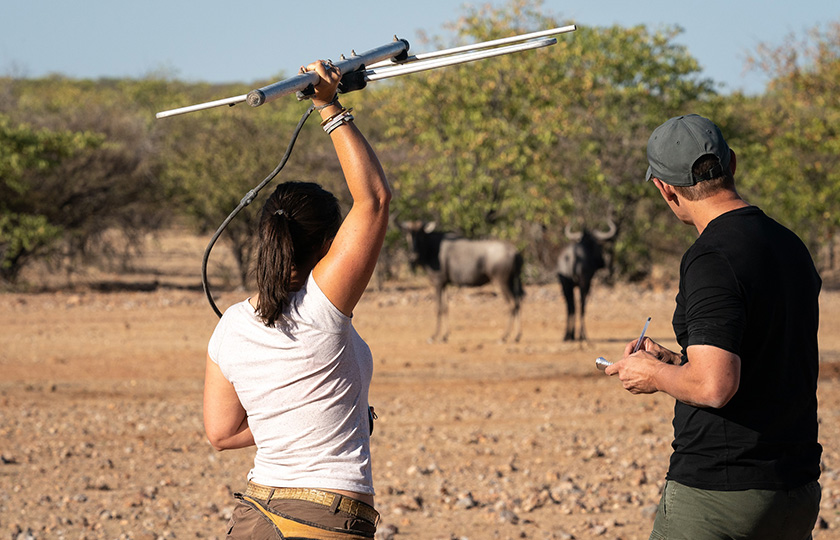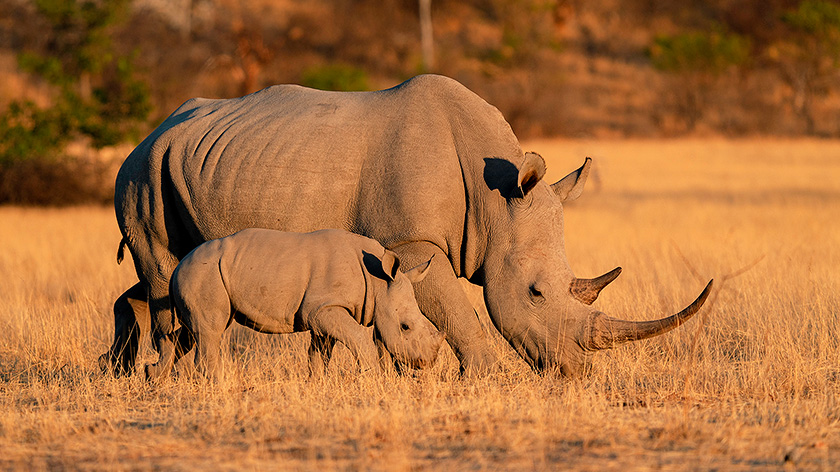Ongava is a standout example of a wildlife haven existing harmoniously with the surrounding environment and is perfectly positioned near Etosha for groundbreaking sustainable research.
In all areas, the Ongava camps are an outstanding example of how to run luxury tourism in such a fragile environment, with a light footprint, strong reinvestment in the local community and an unrivalled dedication to protecting the wildlife that makes Etosha and Ongava such a special place to visit.
Ongava is committed to ‘Nature First’, striving to restore biodiversity, provide a safe sanctuary for rare and endangered species and, through understanding, protect natural resources for the future of our planet.
A vital part of this mission is the Ongava Research Centre (ORC). Leading-edge research into the genetics of Ongava’s rhino population is just one of many examples of how the work being done at Ongava is making a difference to conservation not only in Namibia but throughout Africa.

Ongava Research Centre (ORC) Visitor Centre
The expansion of the ORC on a new campus, which includes an interactive Visitor Centre, sets the scene for an exciting new era where visiting and resident scientists are delving deeper into understanding the ecological processes and biodiversity on Ongava Game Reserve and the surrounding area.
Much of ORC’s focus is on wildlife and plant ecology, evaluating such topics as animal population sizes, interactions between species, and animal movements. ORC also strives to develop new methods to document the natural world and its processes. Not least, research also explores the links between poverty and environmental degradation, particularly in rural areas.
Research on broader processes that affect the biota in semi-arid and arid environments of southern Africa is a priority, for example by understanding movements, and the functioning of episodic events when most animals and plants reproduce. The results of this research are of vital value to conservation and environmental management.

Research at Ongava Private Game Reserve
Studies also focus on the greatest challenge that faces much of rural Africa: how can the prosperity of rural people and the health of natural environments increase while mitigating the effects of climate change at the same time?
Most research is done in collaboration with Namibian and international scientists and students who conduct studies of the highest standard. From these partnerships, Namibian students gain expert knowledge, inspiration, and experience.
Within the lodge itself, wastewater is recycled to help reduce water usage, whilst food is sourced from local suppliers, ensuring fresh, seasonal produce and a low carbon footprint to get it to the lodge. Staff are drawn from local villages and towns, meaning the money they earn and skills they acquire are reinvested into their communities and directly benefit them and their families. The reserve is renowned for being one of the best places in Namibia to see both black and white rhino, with guests able to encounter them on bush walks and game drives and learn about the conservation work being done to protect them.
At Ongava, the goal is to use this understanding to make a positive impact on the planet, its wildlife and its people. That is truly Nature First.
